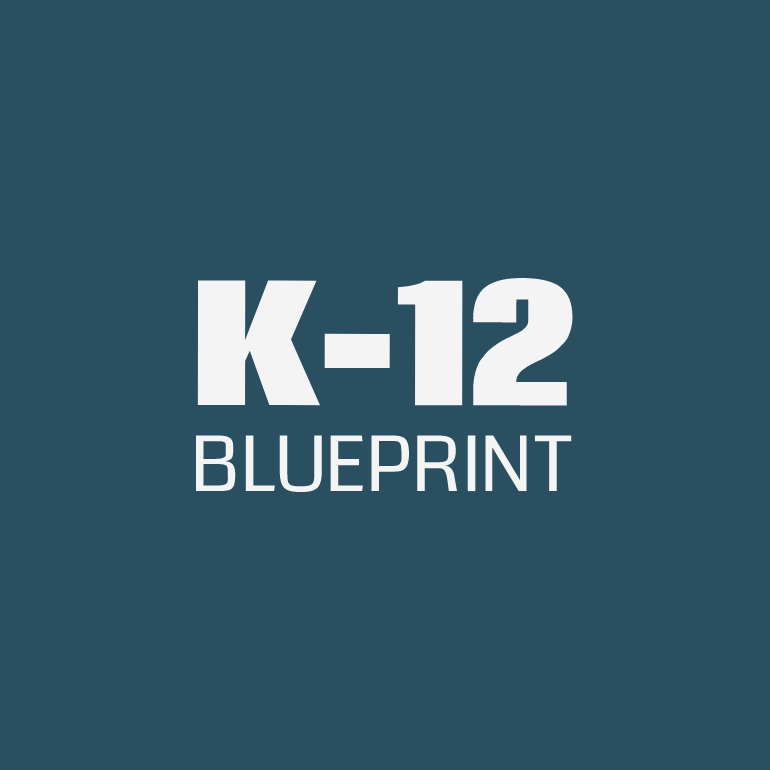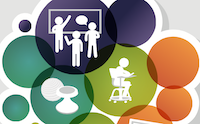Computational Thinking
Computational Thinking is a cognitive strategy utilizing algorithms, abstraction, decomposition and pattern recognition. With Computational Thinking, students develop skills such as critical thinking, analytical thinking, evaluation, and application while learning to solve problems in creative and innovative ways. Support for this toolkit generously provided by Intel.
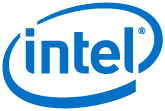
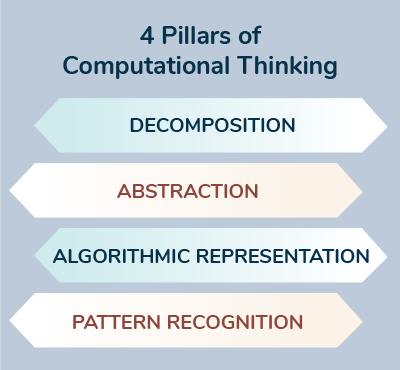
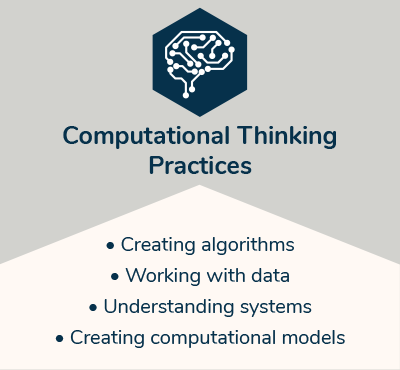
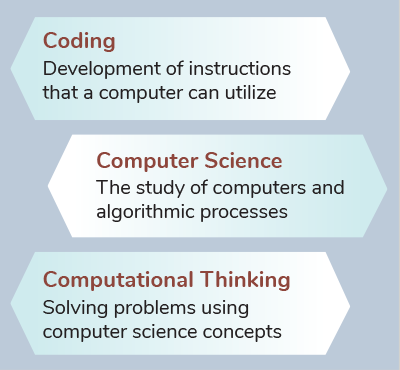
 |
Innovator Kit Software RequirementsDetails of the required and optional software denoted in the Innovator Kit Activity Cards. All of the specified software is freely available for education use or open source. |
 |
Innovator Kit: Activity Card 1In biology, decomposers, such as worms, fungi, or soil bacterium, break down organic matter into smaller parts. However, as computational thinkers, we are all decomposers breaking down complex processes and problems into smaller, more manageable steps. Decomposition is a skill that comes naturally, in all aspects of our lives.
|
 |
Innovator Kit: Activity Card 2Patterns are all around us. Some patterns are simple to describe—cars taking turns one by one at a stop sign—and others are more complex—the sequence of ads and posts in a social media feed. Once we start looking for patterns in the world around us, we can analyze and use these patterns to help make sense of and solve problems. |
 |
Innovator Kit: Activity Card 3Take a look at the room around you. It is filled with details, some important and some not so important. Important details might include the size and shape of the room or who is in the room with you. Less important details might include the color of a chair in the room, the shape of the legs on that chair, or whether or not their are pads on the bottom of the legs. |
 |
Innovator Kit: Activity Card 4In computational thinking, this process of following a step-by-step procedure to overcome a problem is called algorithmic representation or automation. Algorithms are important in computer programming, but we use them in all aspects of day-to-day life, whether solving a math problem, setting an alarm, or remembering where you placed your keys. |
 |
Innovator Kit: Activity Card 7Block coding with Scratch* is a start, but many professional programmers use text-based languages like Python*. Python will level up your programming skills and enable a new set of opportunities with the Tello* EDU drone, including capturing video, establishing your own flight commands, and much more. |
 |
Innovator Kit: FlyerThe Intel Skills for Innovation Innovator Kit is free with the purchase of 50 or more Intel® CoreTM i3 or better-based devices. |
 |
Innovator Kit: Virtual Learning Adaptation GuideSuggestions for adaptations and modifications to ensure the Intel Skills for Innovation Innovator Kit works in virtual, online, and hybrid learning settings. |
 |
Enhancing K–12 Math Instruction with Generative AIModern educators are tasked with developing learning materials and supplemental resources on-demand, and must adapt this content to address each student’s unique abilities or interests. |
News |
 |
Accelerating Learning with Workplace Math SkillsTools such as Math Assistant in OneNote for Education can make a difference in the effort to close the opportunity gap and accelerate learning for all. |
News |
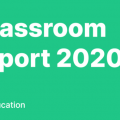 |
The 2020 GitHub Education Classroom ReportThe 2020 GitHub Education Classroom Report captures key insights into the student developer toolchain, how students are learning real-world workflows, and expectations around technical coursework. |
News |
 |
Virtual Learning Has Normalized Educational Game Use for TeachingA new report charts the pandemic-related growth in digital game use in schools, showing that perceived “usefulness” has increased acceptance. |
News |
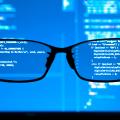 |
Language Aptitude = Learning to Code?Is there a relationship between language aptitude and learning to code? A new study indicates that language skills may predict success in the development of coding skills. |
News |
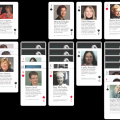 |
Solitary EnshrinementThe pandemic provides the perfect backdrop for that age-old game of isolation, Solitaire. The Notable Women in Tech organization has created a created a deck of cards for that premiere solitaire destination, Solitaired, showcasing prominent women in computing. |
News |
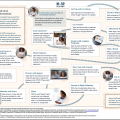 |
Remote Learning with Chromebooks: Usage StudyIn homes across the country, families are finding that the latest generation Chromebooks powered by Intel® not only keep up with their new technology-based demands, but often exceed their expectations for an affordable, portable computing device. |
News |
 |
Computational Thinking in K-12 Education: Video CollectionComputer science educator and author Kiki Prottsman has created three short introductory videos on computational thinking for the K-12 Blueprint. |
Video |
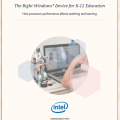 |
The Right Windows Device for K-12 EducationThe education team at Intel® hired Clarity Innovations to research and develop this report to examine how processor performance affects teaching and learning. Be sure to download this free whitepaper. |
Publication |
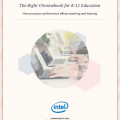 |
The Right Chromebook for K-12 EducationIntel® commissioned Clarity Innovations to evaluate four Chromebooks and test their effectiveness with common learning scenarios, resulting in the The Right Chromebook for K-12 Education white paper. |
Publication |
